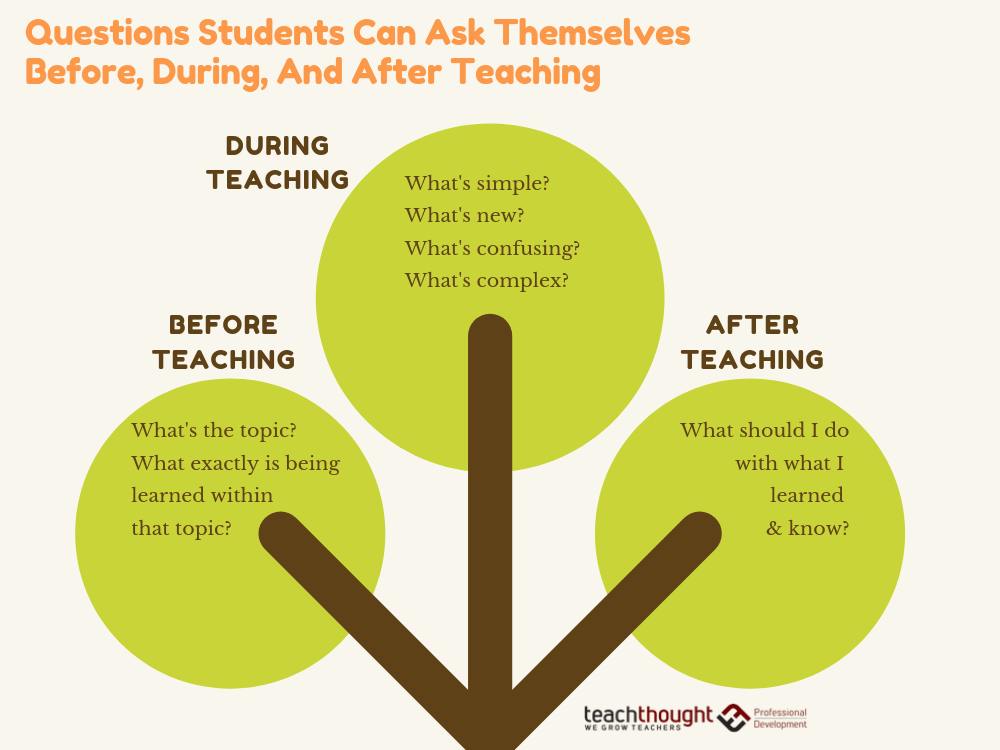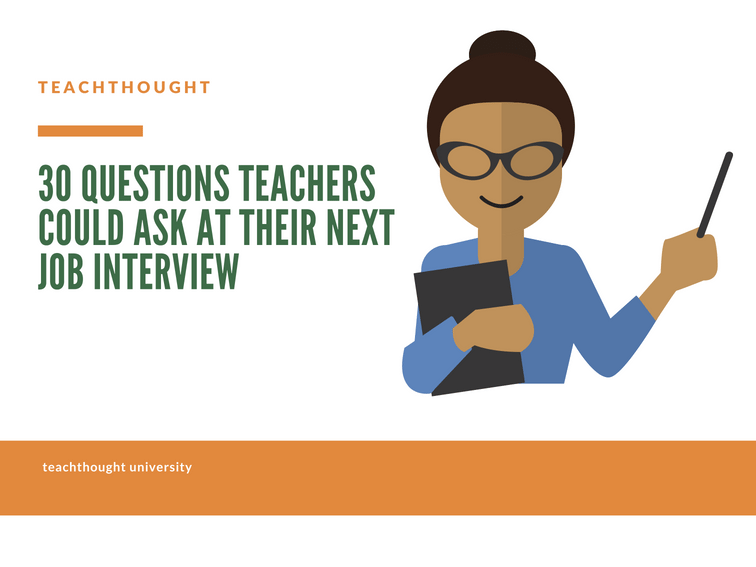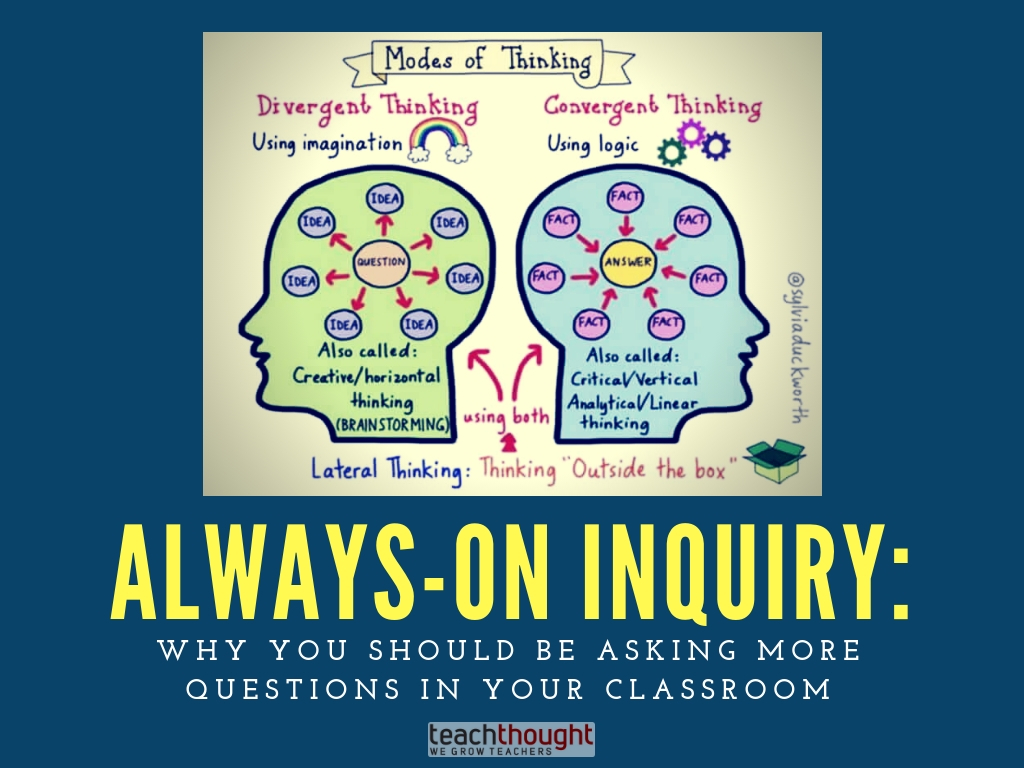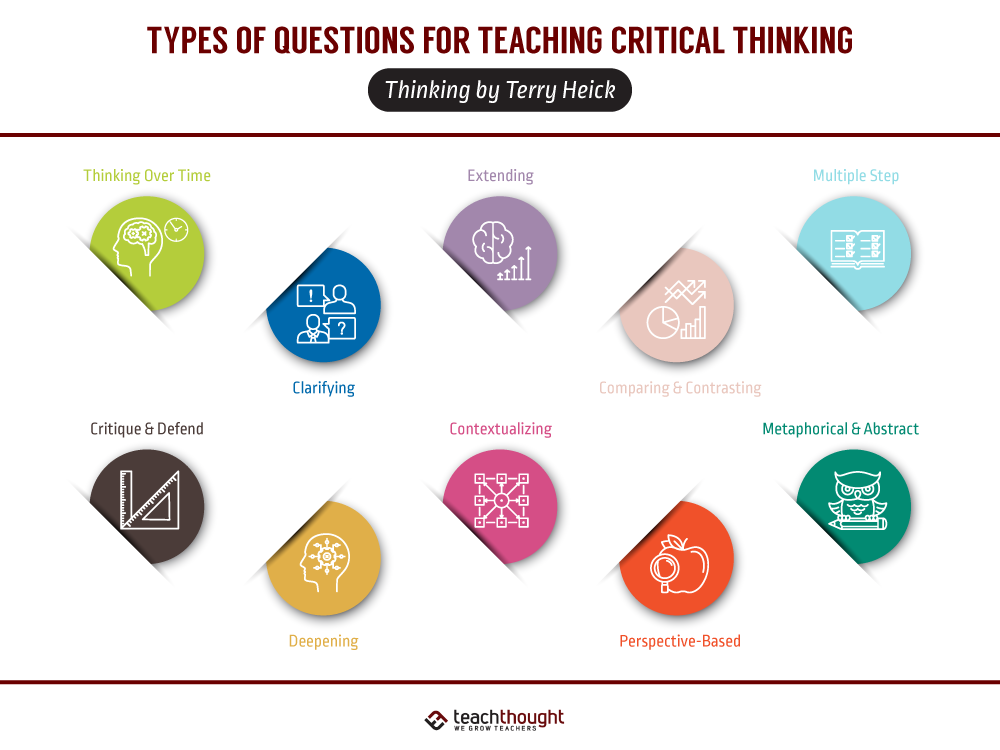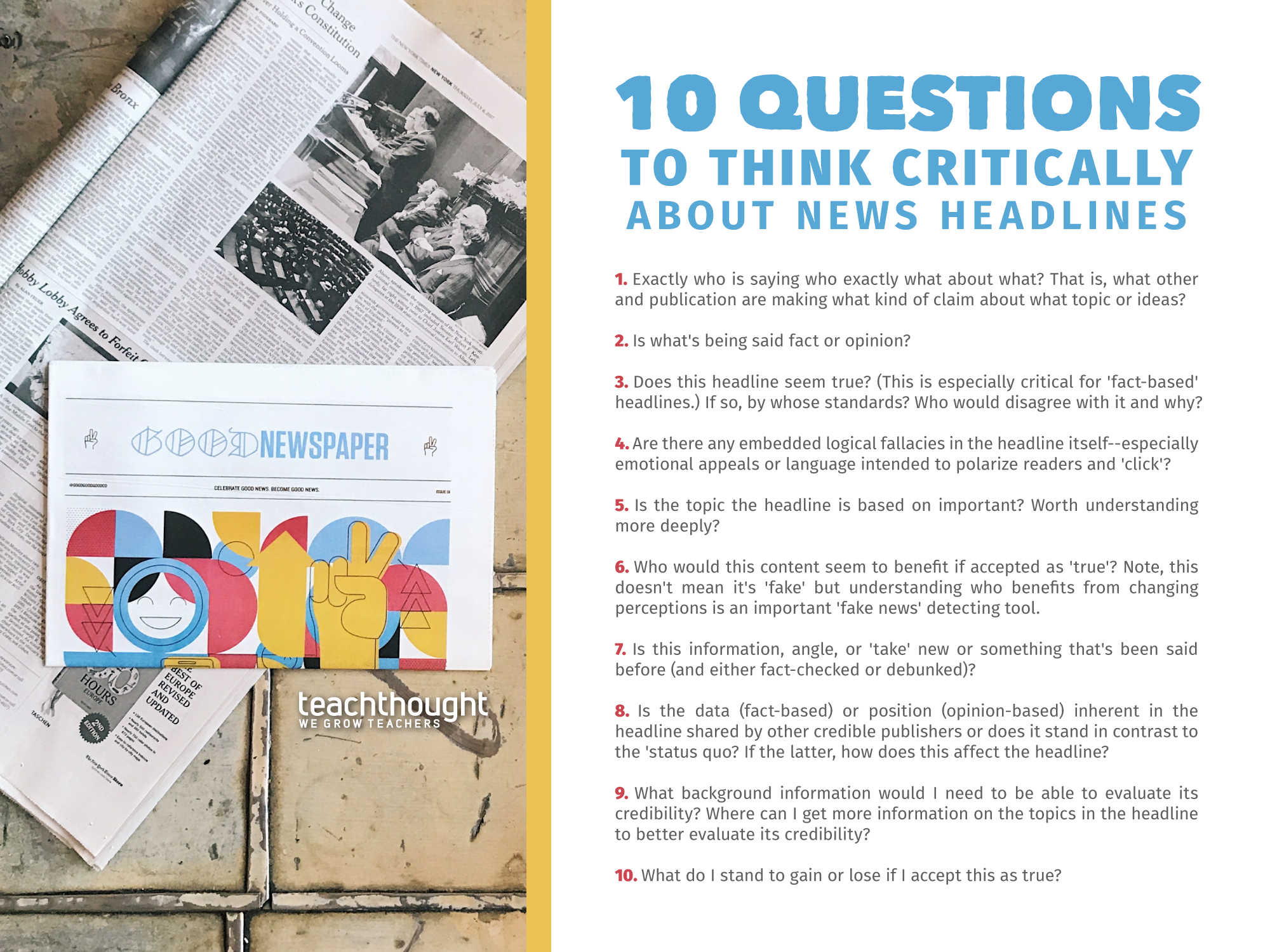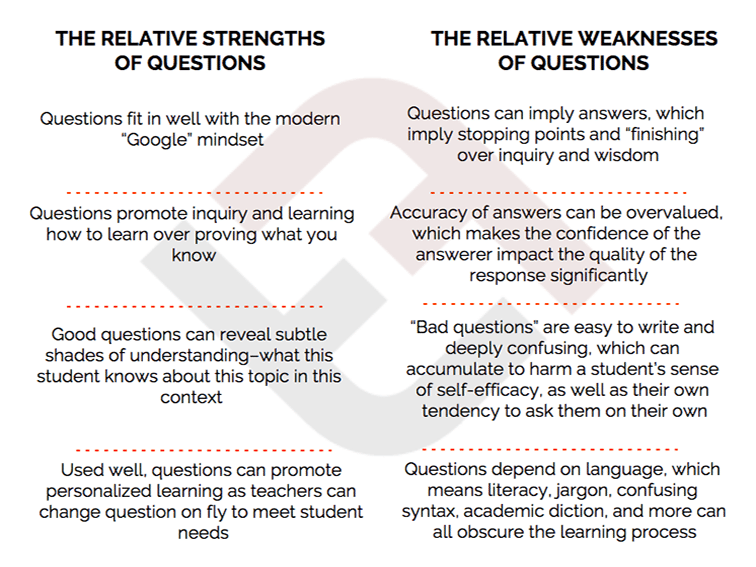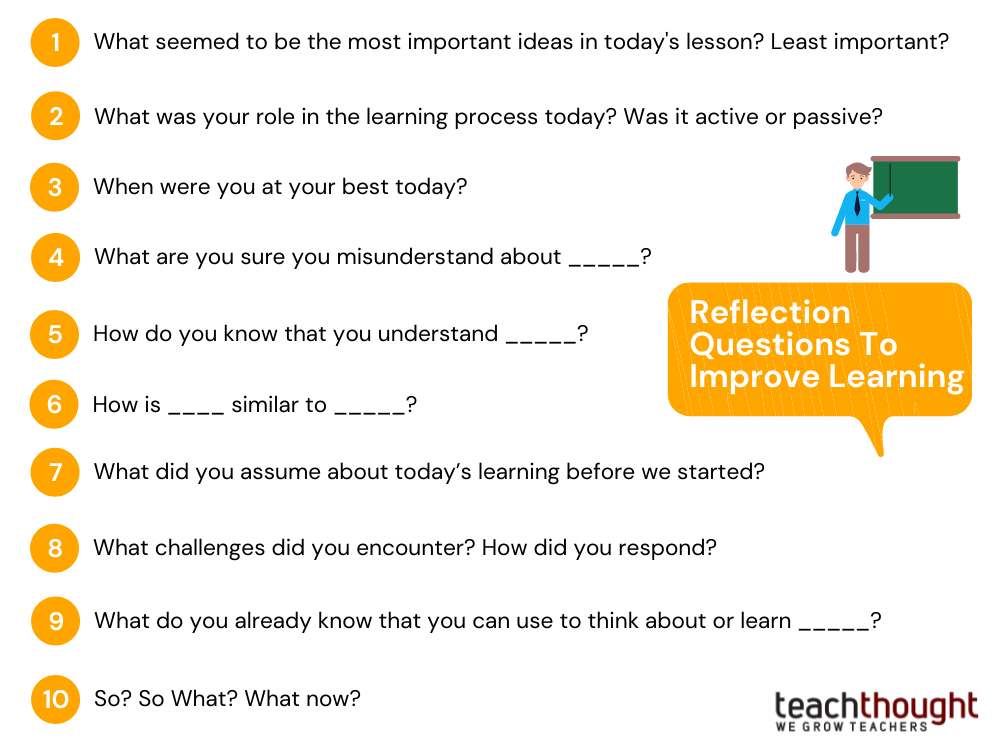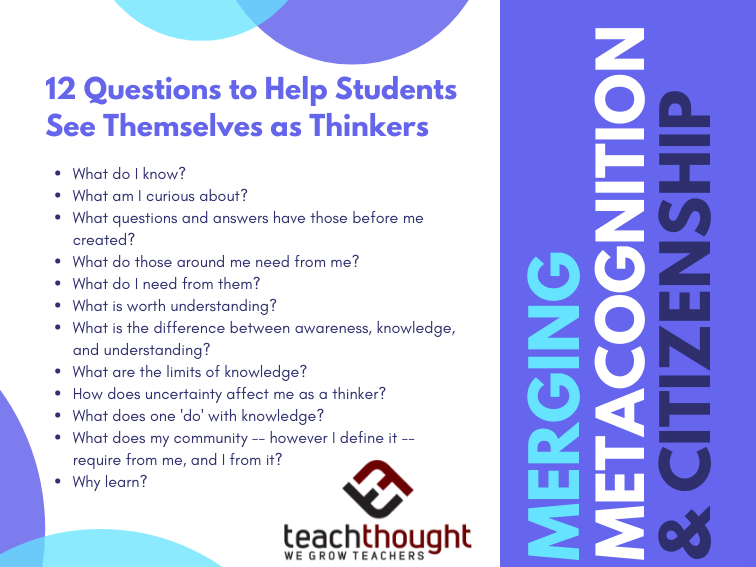Tag: Questioning
75 Questions Students Can Ask Themselves Before, During, And…
We’re sharing 75 questions students can ask themselves that can guide their thinking and awareness before, during, and after your teaching.
30 Questions Teachers Can Ask At Their Next Job…
Do students like going to school here? Do teachers like teaching here? Here are 30 questions teachers can ask at their next…
Why You Should Be Asking More Questions In Your…
Teaching students to ask good questions engages them & acts as ongoing assessment. Here are some of the benefits of inquiry-based learning.
20 Types Of Questions For Teaching Critical Thinking
What are some of the most common types of questions for teaching critical thinking? This led to many dozens of answers.
20 Questions To Help Students Think Critically About News
Misleading info is often based on partial truths & reframed to fit a purpose. Here are questions to help students think critically…
An Updated Guide To Questioning In The Classroom
This guide to questioning in the classroom views questions as signs of understanding, not ignorance–the ability to see what you’re missing.
50 Learning Reflection Questions For Students
Were you an active or a passive learner? Of what you learned today, what are you most comfortable with and what is…
12 Questions To Help Students See Themselves As Thinkers
Self-knowledge is formed through metacognition and basic epistemology. Here are 12 questions to help students see themselves as thinkers.v
